All oral health articles
712 results






Fluoride
What Is Stannous Fluoride Toothpaste and How Does It Work?
Fluoride is a cornerstone of dental health, commonly found in oral care products we use at home. While you may be familiar with types like sodium fluoride, this article dives into stannous fluoride, also known as tin (II) fluoride.
Read More



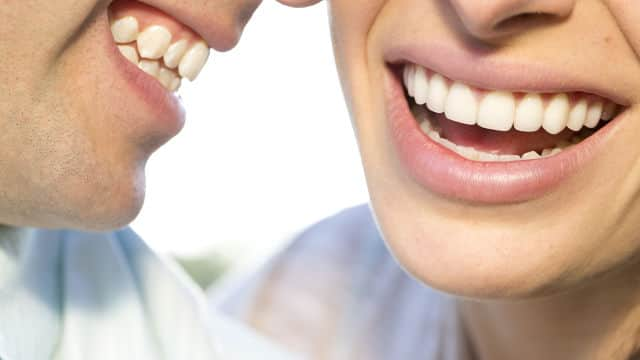




Bad Breath (Halitosis)
What Causes Halitosis? The Common and Uncommon Culprits of Halitosis Revealed!
Read More






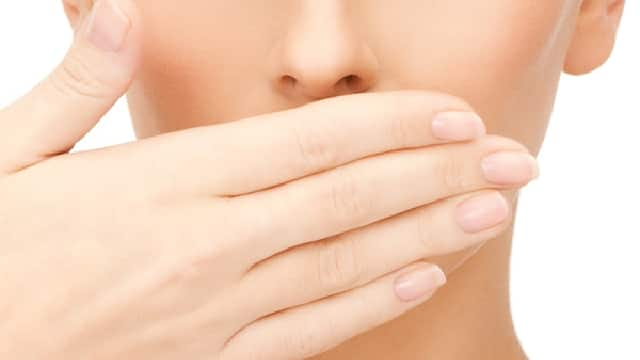




Bad Breath (Halitosis)
5 Foods That Zap Bad Breath Fast
Are you suffering from bad breath? If you are, here are 5 natural bad breath remedies to brighten your day.
Read More
Bad Breath (Halitosis)
Can A Sinus Infection Cause Bad Breath?
When it comes to a sinus infection, bad breath is often the first side effect, as the sinuses drain into the back of your throat. Luckily, this condition is treatable.
Read More
Bad Breath (Halitosis)
The Best Mouthwash for Bad Breath: Key Ingredients to Look For
Mouthwashes fall into one of two categories: therapeutic or cosmetic. Cosmetic mouthwashes are those that mask bad breath, rather than cure it.
Read More
Bad Breath (Halitosis)
Treating & Avoiding Bad Breath | Go Beyond Brushing
Up to 50% of people suffer from bad breath due to a variety of issues. Learn what foods can trigger bad breath and go beyond brushing with our oral health tips to help you beat bad breath.
Read More
Bad Breath (Halitosis)
What To Do About Chronic Bad Breath?
If you have chronic bad breath, you know how embarrassing this problem can be. Instead of temporarily masking the odour with breath mints, gum, and...
Read More
Bad Breath (Halitosis)
Do Cavities Cause Bad Breath?
We've all had bad breath, and it can be embarrassing. But what's the underlying cause? Do cavities cause bad breath? Read on for some answers and prevention solutions.
Read More
Bad Breath (Halitosis)
How To Manage Alcohol Breath
Drinking too much alcohol is bad news for your body and also for your breath. Find out how you can manage and get rid of alcohol breath here.
Read More
Bad Breath (Halitosis)
What Is Perio Breath? The Connection Between Gum Problems and Halitosis
Everyone gets bad breath sometimes. But occasionally, bad breath can be a symptom of an underlying dental issue. Learn more about perio breath.
Read More
Bad Breath (Halitosis)
Bad Breath From Lungs: Oral Hygiene May Not Be The Cause
Have you ever suffered from bad breath and struggled to find the cause? Respiratory conditions can cause bad breath from lungs. Find out more, here.
Read More
Bad Breath (Halitosis)
Probiotics For Bad Breath: A Solution With Impressive Potential
New research shows probiotics can help alleviate bad breath. Read on to find out how you can use good germs to your advantage.
Read More
Bad Breath (Halitosis)
Ammonia Breath And Associated Health Concerns
Bad breath sometimes stems from factors within your control. Ammonia breath, however, may be a sign of a serious health condition. Learn more, here.
Read More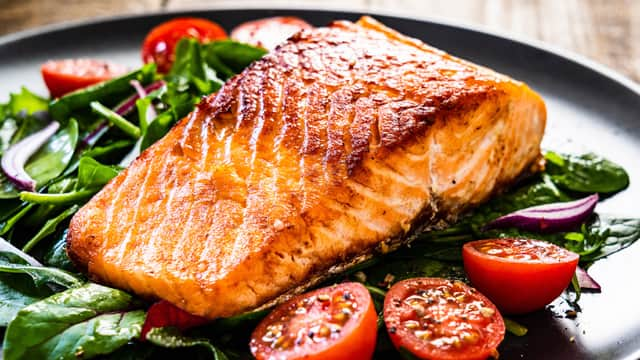
Bad Breath (Halitosis)
3 Foods That Cause Bad Breath and Tips to Fight It
There are many ways to combat bad breath and still enjoy the foods you love. Here are some foods that cause bad breath, and tips on how to control or prevent them from affecting your oral hygiene.
Read More

Bad Breath (Halitosis)
How To Get Rid Of Garlic Breath
There are many things you can do to quickly get your breath under control. Read on to learn how to get rid of garlic breath before an important event.
Read More








Cavities
Children And Tooth Decay: Three Bad Habits That Could Be Damaging
Children and tooth decay shouldn't go together, so make sure you're not unwittingly teaching your kids poor dental hygiene. Parents need to be on guard.
Read More
Cavities
Your Guide To Tooth Decay Stages
Decay worsens over time, and more advanced tooth decay stages require more extensive treatments. If caught early on, you can stop decay in its tracks.
Read More
Cavities
Do Cavity Fillings Hurt?
Do cavity fillings hurt? They shouldn't, although you can expect some tenderness and soreness during the first few days after you get a tooth filled.
Read More
Cavities
Can You Heal A Cavity At Home?
Can you heal a cavity at home? What at-home treatments are available to relieve cavity pain? Learn more about it here.
Read More
Cavities
Too Much Drilling? Not All Early Tooth Decay Needs A Filling
Regular dental checkups are your best defense to spot tooth decay as early as possible so that non-drilling options are still in your scope of treatment.
Read More
Cavities
4 Homemade Toothache Remedies
If a toothache strikes when you can't see your dentist, you may feel desperate to relieve the pain. For temporary relief, consider trying one of these homemade toothache remedies.
Read More
Cavities
What Causes a Cavity on the Front Tooth?
If you or your child has a cavity on the front tooth, resulting in tooth pain, you may be wondering why it happened and how your dentist might treat it.
Read More
Cavities
Pit And Fissure Cavity: How To Prevent It
Pit and fissure cavity prevention can start right at home. Make sure to brush your teeth twice a day for at least two minutes every time.
Read More

Cavities
What Is a Smooth Surface Cavity?
A smooth surface cavity is a type of cavity that appears on the sides of the teeth. Here's what you should know about this type of dental problem.
Read More
Cavities
What Should You Do About a Wisdom Tooth Cavity?
If you have a wisdom tooth cavity, you may be wondering if you should get the tooth extracted or filled. Here's what to consider to correct this condition and relieve the tooth pain.
Read More
Cavities
What Does Sugar Do To Teeth?
It's not the sugar itself that does the damage, but rather the chain of events that takes place after consuming it. Here's how you can prevent tooth decay from hijacking your family's oral health.
Read More
Cavities
When Might You Need Antibiotics for a Toothache?
It's important to get treatment for tooth pain. In some cases, you may need antibiotics for a toothache. Here's what to know before seeing your dentist.
Read More
Cavities
How To Remineralise Your Teeth
Advertisements have flooded the dental market recently with products that claim to remineralise teeth. But are these items effective? Read on for answers.
Read More
Cavities
Dental Cavities: What You Should Know
Cavities is a term for tooth decay. Visit Colgate.com to learn how you can prevent a cavity. Colgate is the world leader in dental health products, so visit us online today to learn how you can enjoy a happy, healthy smile for years to come.
Read More
Cavities
What Causes Cavities? What You Need to know About Cavity Formation, Treatment and Prevention
If you are cavity-prone, take heart: the issue is largely preventable. Regular care of your teeth and a healthy diet can be enormously helpful in protecting your pearly whites.
Read More
Cavities
What Is A Gumline Cavity?
Did you know that cavities can form in the pits & grooves of the molars, between teeth, and even along the gumline? Read on to learn more about gumline cavities.
Read More
Cavities
What Is a Root Cavity and How Can You Prevent It?
A root cavity occurs on the root of your tooth rather than the enamel. Read on to learn more about how to prevent and treat this type of cavity.
Read More
Cavities
Why a Homemade Tooth Filling Won't Fix Your Cavity
A homemade tooth filling may seem like an easy way to treat a cavity — however, only a trained dental professional can properly fill a cavity. Here's why.
Read More














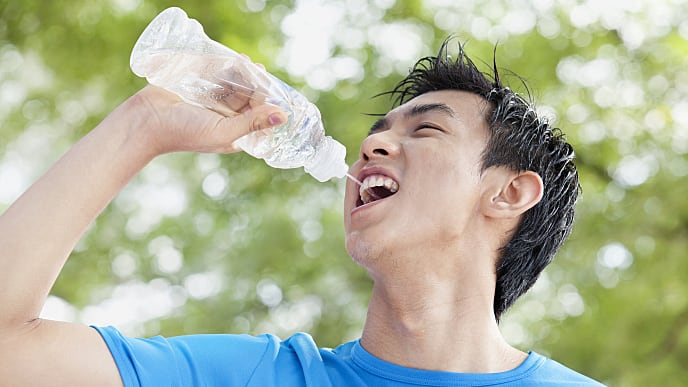
.jpeg)
Dry Mouth
How To Keep Your Salivary Glands Healthy
Your salivary glands, which produce saliva, play a critical role in not just your oral health, but your overall health. Learn how to keep them healthy.
Read More
Dry Mouth
Dry Mouth and Diabetes: Four Tips for Prevention
Dry mouth and diabetes often go hand in hand, but here are four tips for managing the problem.
Read More












Wisdom Teeth
What to Eat After Wisdom Teeth Removal
Hearty and equally soft foods like scrambled eggs, soft fish, finely cut meats, mashed potatoes, oatmeal, and thin soups can keep you feeling fuller for longer.
Read More
Wisdom Teeth
Using Tea Bags After Wisdom Teeth Removal
Did you know minor wisdom teeth bleeding may be relieved with this surprising pantry staple? Click here to learn more about teabags remedy with Colgate.
Read More
Wisdom Teeth
Tooth Swelling: Causes And How To Relieve Discomfort
Tooth swelling has numerous causes. Whatever the cause may be, it can be a serious issue that is often the result of an infection.
Read More
Wisdom Teeth
5 Possible Wisdom Teeth Removal Complications
Here are five of the most common complications with wisdom teeth removal to help you jump-start a discussion with your dentist.
Read More
Wisdom Teeth
What Age Do Wisdom Teeth Come In?
If you and your teen are maintaining your regular dental appointments, you'll be in good stead to monitor whether the wisdom teeth are erupting healthily, or catch if they need intervention.
Read More
Wisdom Teeth
Tips for Preventing and Treating Dry Socket
The true pain from having a tooth pulled comes from developing a dry socket (alveolar osteitis). Learn more about dry sockets here.
Read More
Wisdom Teeth
Wisdom Teeth Symptoms That Indicate Time Extraction
Have you ever felt like you were teething as an adult? It was probably in the back of your mouth, and the swelling you felt there was really a tooth trying to erupt.
Read More
Wisdom Teeth
Recovery After Wisdom Teeth Removal
The pain, swelling and discomfort that follows wisdom teeth removal is a normal part of the healing process. How long is wisdom teeth recovery time?
Read More
Wisdom Teeth
What Is an Operculectomy?
An operculectomy is a minor surgical procedure to remove excess gum tissue covering a partially erupted tooth, which in most cases is a wisdom tooth.
Read More
Wisdom Teeth
Pericoronitis Treatment: How To Clear This Wisdom Tooth Condition
Erupting wisdom teeth can cause problems, including pericoronitis, but your dentist can offer pericoronitis treatment. Learn more about what this entails.
Read More












Mouth & Teeth Anatomy
Are Bony Growths in Your Mouth a Cause for Concern?
Exostosis mouth is a term used to describe an overgrowth of calcified bone in the oral cavity. The condition is not only benign, but also uncommon, and very rarely requires any treatment.
Read More
Mouth & Teeth Anatomy
Are Teeth Bones?
Teeth are strong and white, just like bones. They also store a lot of calcium, just like bones. But are teeth bones? Find out more, here.
Read More
Mouth & Teeth Anatomy
What Is The Pulp Cavity?
Looking to learn what pulp cavity is and why is it important? Discover the types of issues caused by pulp cavities and how you can best care for it.
Read More




















Teeth Whitening
Turmeric For Teeth: Will A Spice Whiten Your Smile?
You probably can't achieve a whiter smile by brushing with turmeric, but some research suggests the spice may have other oral health benefits.
Read More
Teeth Whitening
Burned Gums From Teeth Whitening: What You Need To Know
You may have burned your gums from teeth whitening during at-home treatment. Find out more here, from Colgate®.
Read More
Teeth Whitening
Can Hydrogen Peroxide Be Used With Baking Soda To Whiten Teeth?
Looking to make your own tooth whitening paste? Wondering if hydrogen peroxide can be used with baking soda to whiten teeth? Read on to learn more.
Read More
Teeth Whitening
The Best Home Remedy for Teeth Whitening That Works
Get whiter teeth at home with these all-natural home Remedies for teeth whitening. With a few easy steps, these are an easy way to get a natural smile makeover.
Read More
Teeth Whitening
Is Teeth Whitening Safe?
Many people wish their teeth were whiter, but are nervous about bleaching treatment. So, is teeth whitening safe? Yes, save three common side-effects.
Read More
Teeth Whitening
How To Whiten With Braces
Whitening teeth with braces on isn't impossible, but special care must be taken to ensure treatment is successful. Here are three options.
Read More
Teeth Whitening
Is LED Teeth Whitening Right For You?
The process is minimally invasive and can offer great results. LED teeth whitening is a popular option for achieving a brighter smile, but is it the best at-home treatment for you?
Read More
Teeth Whitening
Is Laser Teeth Whitening an Option For You?
Laser teeth whitening may be an option available at your dental office, but the treatment is not for everyone. Learn more about laser teeth whitening here.
Read More
Teeth Whitening
Whitening Toothpaste - Hydrogen Peroxide vs. Carbamide Peroxide
Hydrogen peroxide toothpaste is a great way to whiten teeth every day. Can you benefit from it? Here are four things people often wonder.
Read More
Teeth Whitening
Is A Teeth Whitening Light Effective?
Looking for a way to brighten your smile with teeth whitening? Learn more about UV and blue light teeth whitening to decide which is the best option for you.
Read More
Teeth Whitening
Is UV Teeth Whitening Safe?
Is UV teeth whitening safe to do yourself at home? Find out more about UV teeth whitening, including safety information and alternatives.
Read More
Teeth Whitening
What Causes Green Tooth And Other Tooth Discolouration?
Tooth discolouration like a green tooth can occur under many circumstances, prompting you to consider teeth whitening options. These stains can be extrinsic (on the surface) or intrinsic.
Read More
Teeth Whitening
White Stains On Teeth After Whitening Treatments
Teeth whitening doesn't exactly cause white tooth stains, but if your teeth already have white stains caused by hypocalcification, then tooth whitening could make them more visible.
Read More
Teeth Whitening
Whitening Bonded Teeth: Perfect Your Smile
Restorations don't require a great deal of special care, but when it comes to whitening bonded teeth, there are a few things you should keep in mind.
Read More
Teeth Whitening
Teeth Whitening and Anti-Ageing: Turning Back the Clock on Your Smile
As you age, your teeth age with you. Here are some teeth whitening tips to improve your ageing teeth.
Read More
Teeth Whitening
Whitening Toothpaste 101: The Basics of Daily Whitening
Before you pick up a toothpaste that promises to whiten your teeth, make sure you understand the hows and whys so you can pick out the right product.
Read More
Teeth Whitening
5 Common Teeth Whitening Mistakes
For the best results, check with your dentist before bleaching and to avoid some of the following teeth whitening mistakes.
Read More
Teeth Whitening
5 Things To Look For In A Teeth Whitening App
Teeth whitening app can magically whiten your teeth in photos. Find out a list of things to look for in a teeth whitening app.
Read More
Teeth Whitening
The Best Home Teeth Whitener Options For You
Searching for a teeth whitening product? Here's how you can make the choice that's right for you when it comes whitening your teeth.
Read More
Teeth Whitening
How to Choose a Teeth Whitening System | Colgate®
Many people want a whiter smile, so how to you choose the best teeth whitening system for you? Find out more about teeth whitening systems here.
Read More
Teeth Whitening
How Custom Whitening Trays Brighten Your Smile
If your teeth aren't as white as you'd like, there are safe and simple ways to improve it. One of them involves custom whitening trays.
Read More
Teeth Whitening
What Works Best To Remove Coffee Stains From Your Teeth?
Most of us can't live without a daily dose of coffee to jump start the day, but could the beverage that puts morning smiles on… Read more at Colgate.com
Read More
Teeth Whitening
How To Maintain White Teeth
Whether you already have white teeth or you've just completed a whitening treatment, keep in mind that you've still got some wor...
Read More
Teeth Whitening
Banana Peel Teeth Whitening: Will It Give You A Brighter Smile?
Some claim that banana peel teeth whitening works, but does the science support it? Learn more about bananas and what you can do for a whiter smile, here.
Read More
Teeth Whitening
What are teeth whitening options if you have a crown?
Can you whiten a crown when you've had dental work and want to brighten your smile? Before you proceed, it's best to speak with your dentist to explore your options.
Read More
Teeth Whitening
Does Tea Stain Teeth?
We know coffee can discolour those pearly whites, but does tea stain teeth, too? The answer is yes. In fact, tea might be even more… Read more at Colgate.com
Read More
Teeth Whitening
Five Foods that Cause Stains and Six Foods that Prevent Them
Watch what you eat and drink, because certain foods and beverages cause discoloured teeth.
Read More
Teeth Whitening
How To Avoid Red Wine Teeth Stains on Special Occasions
How do you enjoy your favourite reds at special events without the self-consciousness associated with red wine teeth? Here's the scoop on preventing wine-stained teeth.
Read More
Teeth Whitening
How to Whiten Your Teeth: 4 Methods for Whiter, Brighter Teeth
By using a whitening toothpaste, not only are you taking advantage of the special whitening ingredients, but you're also keeping your gums and teeth healthy.
Read More
Teeth Whitening
The Best Whitening Mouthwash: What to Look For
What is the best whitening mouthwash out there and is using it going to help you get a brighter smile? Find out here!
Read More
Teeth Whitening
The Perfect Smile for Video Calls
How to have a great smile on camera? Click here to learn the healthiest ways to have a beautiful smile on and off camera with Colgate.
Read More
Teeth Whitening
Does Charcoal Toothpaste Work?
While the research surrounding charcoal toothpaste is still emerging, many find that the known benefits are definitely worth the try. Read more about it here with Colgate.
Read More
Teeth Whitening
3 Tips For Preventing Teeth Stains From Braces
Learn about our top 3 tips for preventing teeth stains from braces and whitening your teeth evenly once they come off with Colgate.
Read More
Teeth Whitening
How To Get Whiter Teeth With The Right Foods
If you're wondering how to get whiter teeth, whether or not you also use a whitening product, keep the following foods in mind to help you along the way.
Read More
Teeth Whitening
4 Types Of Teeth Whitening Products
The primary factors that dictate what patients want in teeth whitening are ease of application, effectiveness and affordability
Read More
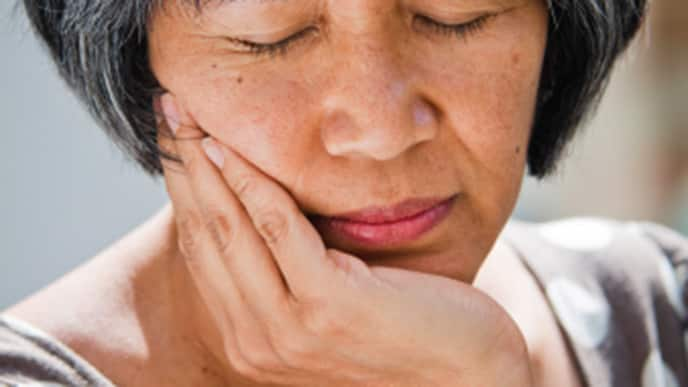



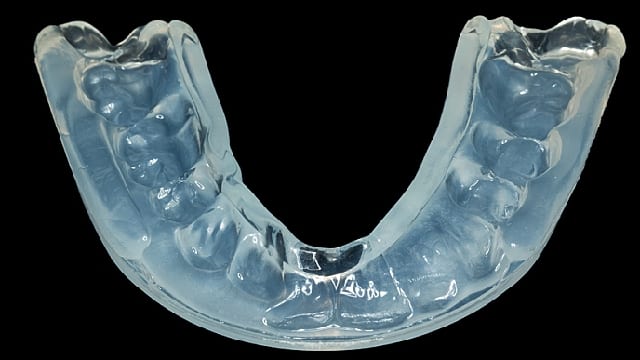












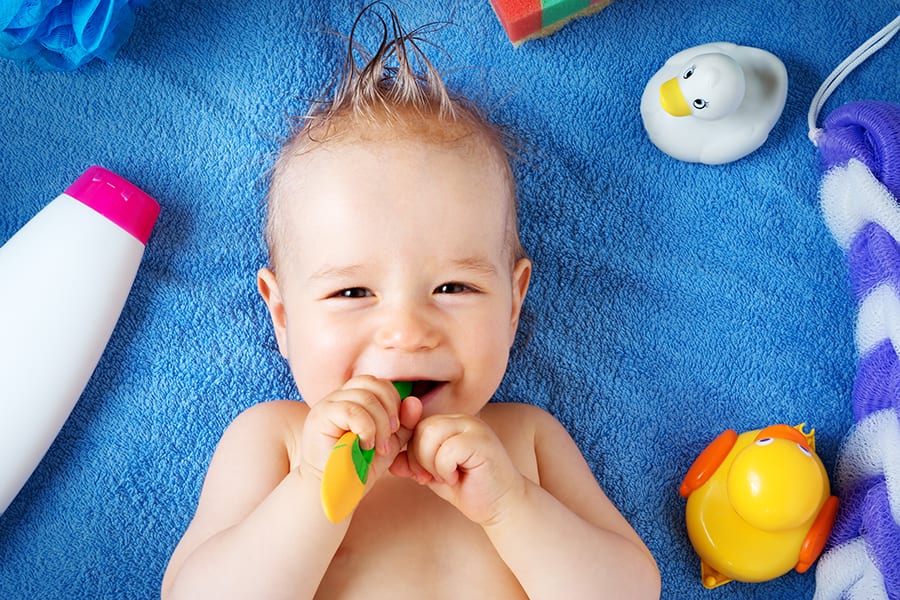

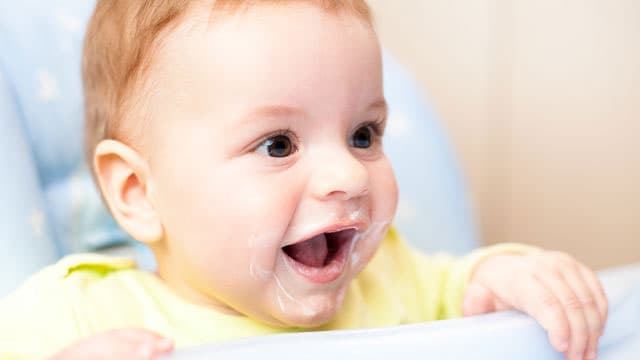


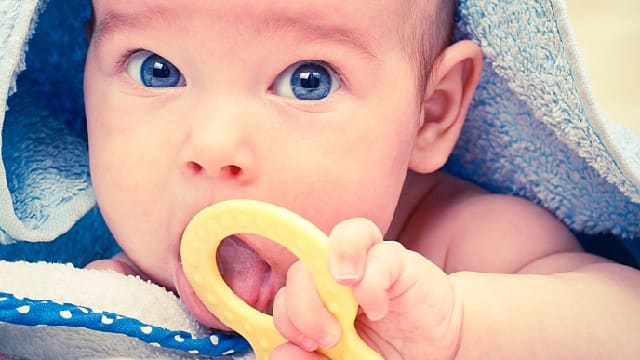







Oral Care: Kids (5-12)
9 Causes of Bad Breath in Children
Even healthy children can sometimes experience bad breath. If you've noticed that your little one's breath is not so pleasant, don't despair – there is hope.
Read More
Oral Care: Kids (5-12)
Hand, Foot and Mouth Disease (HFMD): Symptoms, Treatment, Prevention
Read More
Oral Care: Kids (5-12)
Top Teething Remedies For Babies: Helping Your Little One Overcome The Pain
When your baby's first tooth breaks through the gums, you have both reached an exciting milestone. But it's a painful one. These remedies can help.
Read More
Oral Care: Kids (5-12)
Kids' Mouthwash And Mouthwash Safety
An oral hygiene routine that includes mouthwash can help keep teeth and gums healthy, but it's important that kids' mouthwash is used safely. Learn more at Colgate.com.
Read More
Oral Care: Kids (5-12)
Looking after your children’s Oral Health with Colgate
Looking after your children’s Oral Health with Colgate
Read More
Oral Care: Kids (5-12)
Natural Toothache Pain Relief for Your Child
Whether your little one complains of a loose tooth after playing in the garden or your older child has unexpected tooth pain in the night, you can naturally and effectively administer toothache pain relief until you can book an appointment with a dentist.
Read More


Tooth Extraction
Pain After Having A Tooth Removed: 3 Tips To Help Your Kids Keep Brushing
Read More





Tooth Extraction
Alcohol After a Tooth Extraction: Is It OK To Have a Drink?
If you've recently had a tooth removed, you might want to know if you're allowed to drink alcohol after a tooth extraction. Here is your answer.
Read More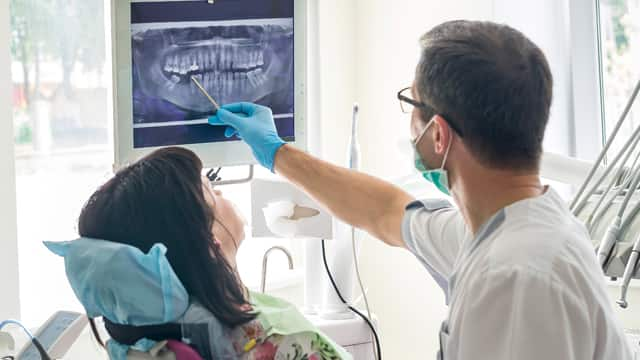
Tooth Extraction
When Surgical Extraction Of Teeth Is Necessary
Although many of your teeth are easily removable, occasionally the procedure can be more complicated. Here's why the surgical extraction of teeth may become necessary.
Read More
Tooth Extraction
Can I Drink Coffee After A Tooth Extraction?
It's important to take care of your mouth after an extraction. If you've ever wondered, "Can I drink coffee after a tooth extraction?", here is your answer.
Read More
Tooth Extraction
Finding A Bone Spur In Gum Tissue? Here's What To Do
Feeling a bone fragment in your gums? You may have a bone spur in gum tissue, but the condition is common and treatable through a visit to your dentist.
Read More
Dental Product Guidance
What Products Are Available From My Dentist For Home Tooth Whitening?
Read More
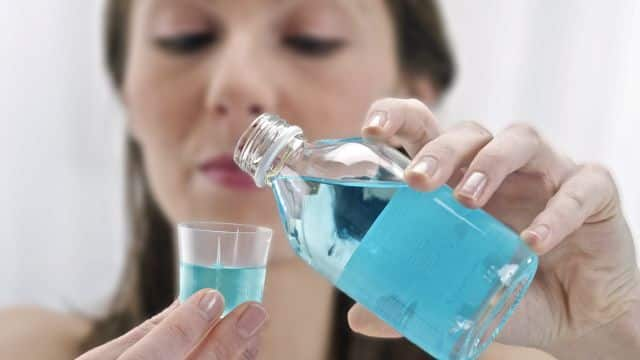
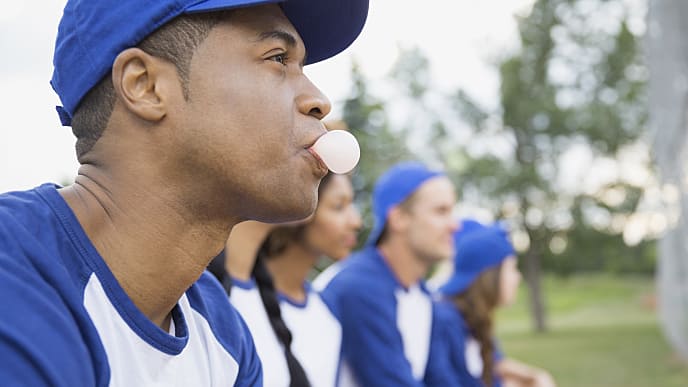

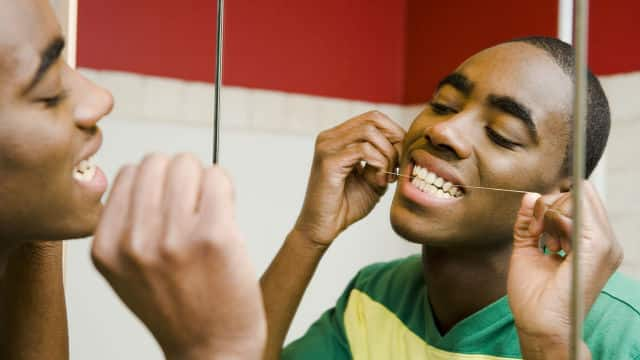

Dental Product Guidance
4 Questions You Might Have About Chlorhexidine Gluconate Mouthwash
Read More
Dental Product Guidance
Is Baking Soda Mouth Rinse Safe And Effective?
While there are many mouthwashes on the market today, would a baking soda mouthrinse be safe and effective for daily use?
Read More
Dental Product Guidance
Antiseptic Vs. Antibacterial Mouthwash: What's The Difference?
Mouthwash can freshen your breath and protect against cavities. When it comes to antiseptic vs. antibacterial mouthwash, is one better than the other?
Read More
Dental Product Guidance
The Benefits of Alcohol-Free Mouthwash
Mouthwash may appeal to those who need a quick on-the-go clean. Alcohol-free mouthwash, however, is a product whose value depends on the individual.
Read More
Dental Product Guidance
Choosing The Best Toothbrush For You
The best toothbrush for the job depends on a variety of things that are unique to you. Here are three things to look for in your toothbrush.
Read More
Dental Product Guidance
Finding The Best Tongue Cleaner
A tongue scraper is the best tongue cleaner out there. Here's why you should invest in one, how to use it, and what to consider when buying one. Learn more here.
Read More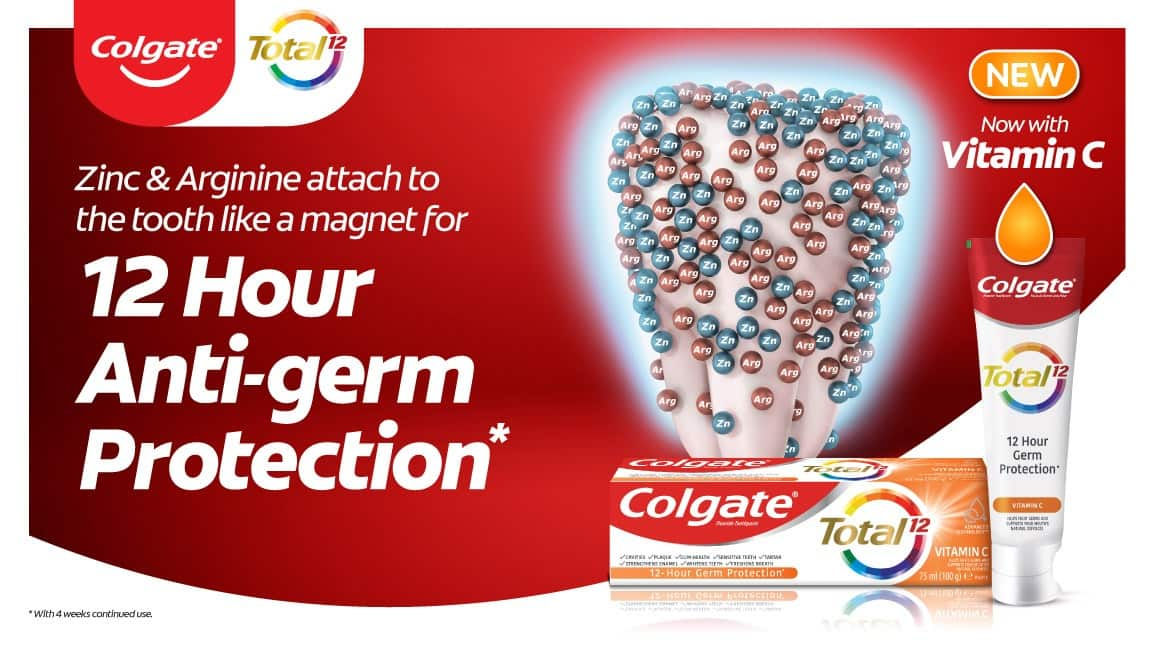
Dental Product Guidance
Colgate ® Total 12 Gives You More Reasons to Smile
Brighten your smile, freshen your breath, fight germs, and more with Colgate Total 12. It’s specially formulated to give you and your family whole mouth care.
Read More
Dental Product Guidance
Teeth Whitening Pens 101
If you're looking for a last-minute touch-up to your smile, a teeth whitening pen might be just the thing. Here's what makes it work, and how to use it.
Read More
Dental Product Guidance
How Does Mouthwash Work? Answering your mouthwash questions
What type of mouthwash should you choose? How does mouthwash work? This guide will answer those questions and more.
Read More
Dental Product Guidance
Is Woven Dental Floss Best? Finding The Right Floss For You
The rows of choice at the pharmacy could turn this daily routine into a head-scratcher. How does woven dental floss stack up to other varieties?
Read More
Dental Product Guidance
Choosing An Infant Toothbrush
You can establish a regimen of infant oral care early on, even before that first tooth sprouts. Choosing an infant toothbrush makes it easy to practise good oral care from the start.
Read More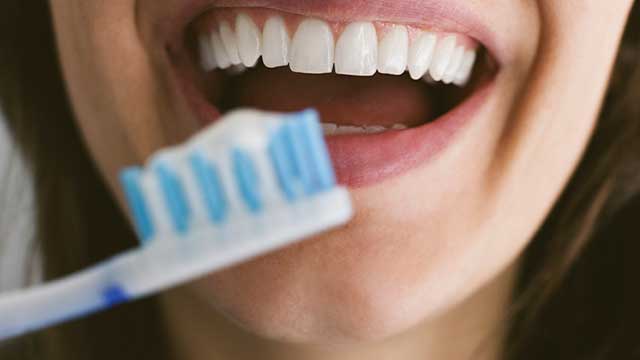
Dental Product Guidance
4 Easy Ways To Help Protect Against Germs In Your Mouth
Brighten your smile, freshen your breath, fight germs, and more with Colgate Total 12. It’s specially formulated to give you and your family whole mouth care.
Read More
Dental Product Guidance
Soft vs. Hard Toothbrushes: What's Right For You
As a general rule, dentists recommend choosing a toothbrush with soft bristles instead of one considered hard or even medium-hard.
Read More
Dental Product Guidance
Teeth Whitening Toothpaste: Does It Work?
If surface stains are contributing to your teeth's discolouration, you can try using a teeth whitening toothpaste to improve their appearance.
Read More
Dental Product Guidance
Using Tartar-Control Toothpaste For Healthy Teeth And Gums
Brushing your teeth properly using tartar-control toothpaste regularly is an important part of establishing and maintaining good oral health.
Read More
















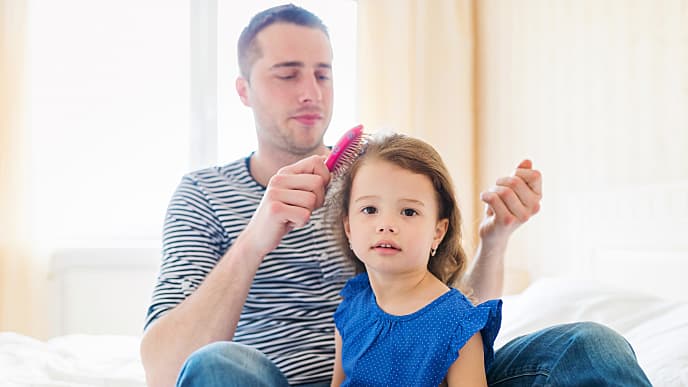
















Mouth Sores and Infections
All About Herpes in the Mouth
Of all the possible sores found in the mouth and on the lips, one of the most common is herpes in the mouth. Read on to learn how herpes in the mouth is contracted, how prevalent it is, how it is caused, and treatments that can relieve the symptoms.
Read More
Mouth Sores and Infections
Herpes Esophagitis: Symptoms, Treatment Options, and Prevention
You may be aware that some cold sores on the lips or in the mouth are caused by the herpes simplex virus (HSV). This virus can also affect the esophagus, which is the tube that connects the mouth to the stomach .Esophagitis is used as the general term for any irritation, swelling or inflammation of the esophagus. There are a number of germs that can infect the esophagus, one of which is HSV, which can cause herpes esophagitis. If you have difficulty swallowing or pain in the throat, your dental professional can determine if you have contracted herpes esophagitis and what should be done for treatment.
Read More
Mouth Sores and Infections
How to Spot Lip Fungus and What to Do About It
Lip fungus is caused by a yeast called Candida, which occurs naturally in the body. Learn what causes the overgrowth infection and what you can do about it.
Read More
Mouth Sores and Infections
5 Ways To Get Rid of Canker Sores Naturally
When searching how to get rid of canker sores naturally, you'll see there are a variety of treatments available. Learn more here.
Read More
Mouth Sores and Infections
How Salt Water Mouth Rinse Benefits Oral Health
Discover how a salt water mouth rinse is useful for a number of different reasons, like for anyone who has a sore throat, gum sores or recently underwent dental procedures.
Read More
Mouth Sores and Infections
Can You Use Hydrogen Peroxide On A Canker Sore?
Learn how canker sores form and whether you can use hydrogen peroxide on a canker sore. Read on for additional ways to heal a canker sore.
Read More
Mouth Sores and Infections
How To Kill Mouth Germs And Keep Them Away
There's a party going on in your mouth, to which you might not have been invited. The human mouth can be home to more than 700 species of germs, some of which might be more harmful than others. While many types of germs will help break down food and actually protect your teeth, some, such as Streptococcus mutans, play a part in tooth cavities, and others, such as Porphyromonas gingivalis, can lead to gum problems. If you've ever dealt with bad breath, you can blame germs for that, too.Luckily, figuring out how to kill mouth germs isn't that tricky. It comes down to developing a great at-home oral care routine and doing what you can to minimise the presence of the bad germs.
Read More
Mouth Sores and Infections
Yeast Infection In Your Throat: Everything You Need To Know
Understanding the causes and symptoms of yeast infection in the throat can help you get the right diagnosis and treatment. Learn more, here.
Read More

Dental Health Threats
Dental Grills — The New Trend Affecting Dentistry And The Health Of Your Teeth
Read More


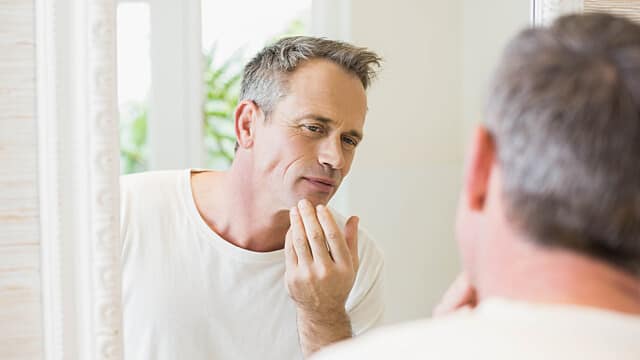



Dental Health Threats
Apical Periodontitis: Causes, Symptoms, and Treatments
Apical periodontitis means inflammation near the tip of your tooth's root. Learn about the different types, common causes and treatment options.
Read More
Dental Health Threats
Sugar Habit? How to Curb It and Prevent Tooth Decay Symptoms
Sugar exacerbates tooth decay symptoms, and it's common knowledge that large amounts of it are bad for your dental health. Here's how to start avoiding it.
Read More
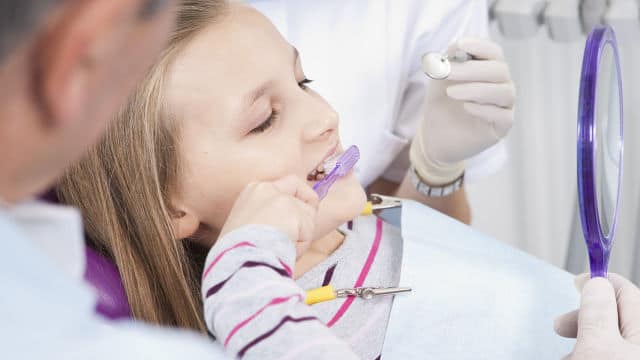
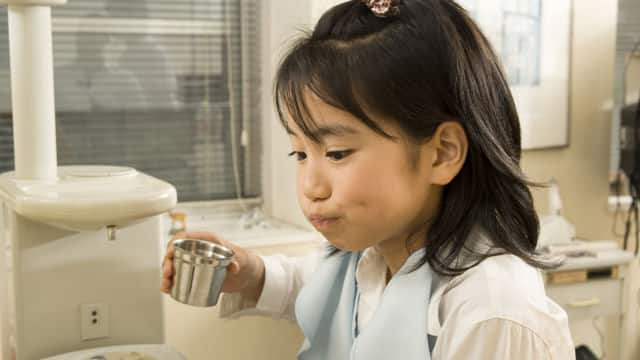
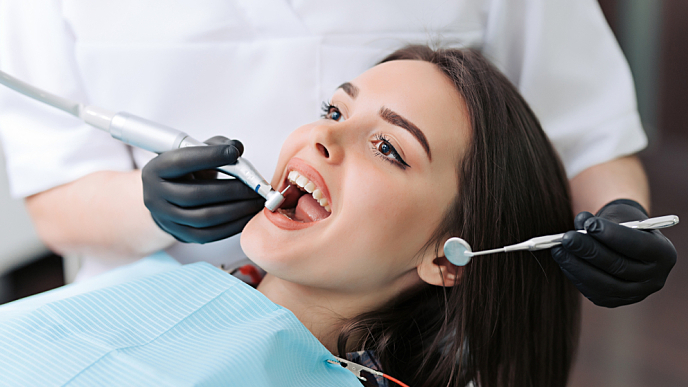
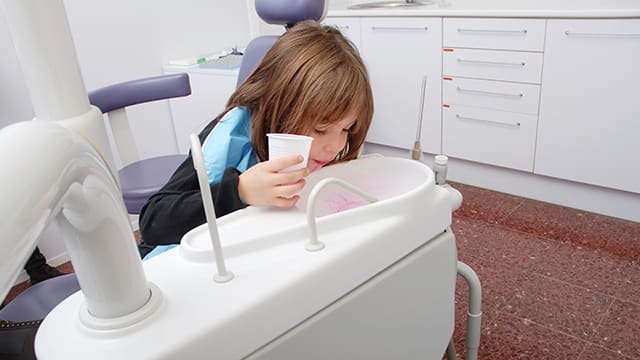











Veneers
Can You Whiten Veneers?
After a few years your once-bright veneers may look discolored. Can you whiten veneers? Find out more about caring for your veneers and keeping them white.
Read More
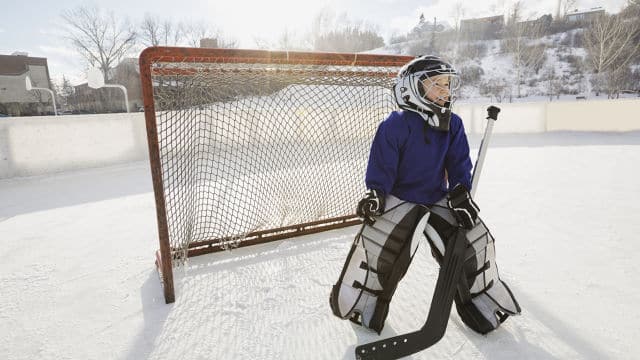


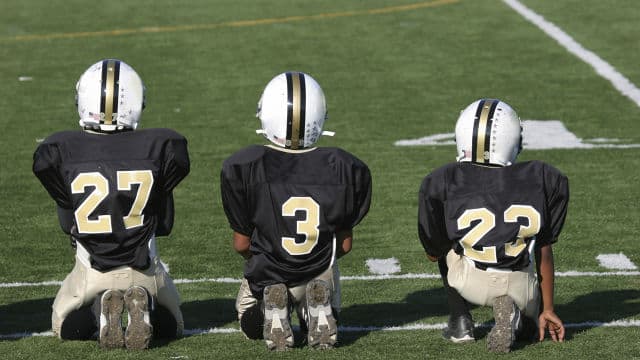





Dental Emergencies & Sports Safety
Dry Socket Symptoms: When, Where And Why Dry Sockets Happen
Read More



Dental Emergencies & Sports Safety
Can A Tooth Crack In Half And Be Fixed?
One moment you're biting into a crisp flatbread pizza, and the next you've got a tooth cracked in half. There are a few reasons why this can happen.
Read More
Dental Emergencies & Sports Safety
What To Do With A Broken Tooth
A few quick steps and an immediate dental visit can help your dentist repair a broken tooth. Find out more about what to do about a broken tooth, here.
Read More.png)
Dental Emergencies & Sports Safety
Seeking Treatment For Oral Care Problems In Emergency Rooms
Hospital emergency rooms are seeing an increase in people visiting with routine oral care problems.
Read More
Dental Emergencies & Sports Safety
Can I Use Clove Oil for Toothache Pain?
Using clove oil for toothache pain can provide you with relief now, but it doesn't last as long as treatment from your dentist. Here's why.
Read More
Dental Emergencies & Sports Safety
4 Tips to a Soothe a Burnt Tongue
Oral burns call for a swift response if you want to ease the pain. Fortunately, there are several burning tongue remedies that can help. Learn more here.
Read More
Dental Emergencies & Sports Safety
Broken Wisdom Tooth: Adverse Side Effects If Left Untreated
Wisdom teeth are the very last of your permanent teeth to come in, and they usually erupt in your late teens or early twenties. Read more at Colgate.com
Read More
Dental Emergencies & Sports Safety
Identifying A Bruised Tooth
Hearing about a bruised tooth can be alarming. Will the tooth heal? Will it actually turn black and blue? Find out more about identifying and treatment here.
Read More
Dental Emergencies & Sports Safety
How To Deal With Your Child's Chipped Tooth
Every parent knows it's hard to keep children still for too long. Kids today love to run around the house, jump on furniture and… Read more at Colgate.com
Read More
Dental Emergencies & Sports Safety
Cut on Gums: Causes, Treatment & Prevention
When a cut on gums ruins your day, here are the signs that you should visit a doctor. Learn more here.
Read More

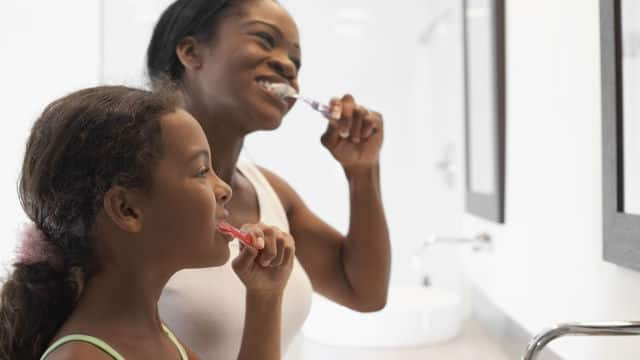

































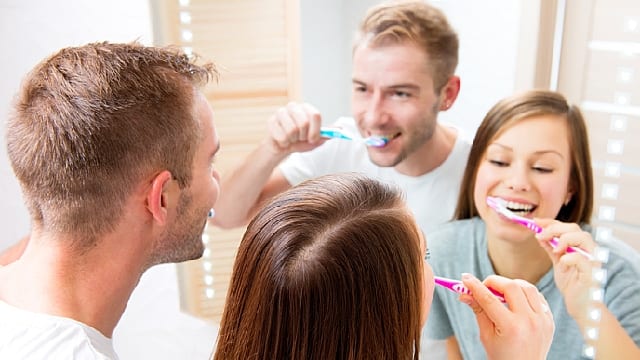

Oral Care: Adults (18+)
Bad Teeth May Cause Serious Health Problems
Bad teeth can affect your life in ways that go beyond aesthetics. They could affect your overall health. Find out more about bad teeth & health.
Read More
Oral Care: Adults (18+)
Dry Socket Treatment After Tooth Extraction
What is dry socket and what is the best dry socket treatment following a tooth extraction? Learn more about how to identify and treat dry socket, here.
Read More
Oral Care: Adults (18+)
Simple Ways To Have Healthy Teeth And Gums For Life
Having healthy teeth and gums plays an essential role in your overall health. It is important that you do whatever you… Read more at Colgate.com
Read More


Oral Care: Adults (18+)
Rash Around the Mouth? Perioral Dermatitis And What It Means For You
Read More

Oral Care: Adults (18+)
Improve Gum Health in Less Than 5 Minutes
You take the time to brush and floss your teeth, because you want a brighter smile. But how often do you think about ways to improve gum health?
Read More
Oral Care: Adults (18+)
What Is Referred Tooth Pain?
Sometimes a toothache isn't all it seems. Pain that feels as though it's coming from a tooth may be referred tooth pain. Learn more here.
Read More
Oral Care: Adults (18+)
Swollen Lip Causes: How to Deal with Mouth Swelling
Most people have experienced the sensation of a fat lip, where it feels as though your lip is swollen & puffy. Learn more about swollen lip causes here.
Read More
Oral Care: Adults (18+)
What It Means If Your Teeth Feel Rough
Do your teeth feel rough? Learn about possible rough teeth enamel causes and prevention, such as brushing your teeth twice per day and flossing once per day.
Read More
Oral Care: Adults (18+)
What To Do About Black Teeth Stains
Learn about the causes of black stains on your teeth, stop them at the source, and bring back your shiny white smile.
Read More
Oral Care: Adults (18+)
Enamel Hypoplasia, Hypomineralisation, And Teeth Effects
Enamel hypoplasia (EH), a developmental defect that weakens the surface of your teeth, can affect the primary and permanent teeth in one of two ways.
Read More
Oral Care: Adults (18+)
Transient Lingual Papillitis: Location, Symptoms And Treatment
Inflammation of the tongue's papillae can cause pain and difficulty eating. Read on to learn why transient lingual papillitis happens and how to treat it.
Read More
Oral Care: Adults (18+)
How To Find Relief for Abscessed Teeth
You're experiencing some serious tooth pain, that might signal a tooth abscess. Read on to learn what home remedies can help relieve this pain and discomfort.
Read More
Oral Care: Adults (18+)
Hydrogen Peroxide and Oral Care Benefits
Hydrogen peroxide is a whitening agent, but it can also help remove germs that damage your gums. Learn more about how hydrogen peroxide gums treatment works.
Read More
Oral Care: Adults (18+)
What A Tooth Sensitive To Pressure Means For Mouth Health
It's no fun when teeth can't handle cold temperatures, but when you have a tooth sensitive to pressure, there could be more structural issues at play.
Read More
Oral Care: Adults (18+)
What A Lump On The Jawline Could Indicate
Swellings of the mouth or a lump on the jawline can indicate many different conditions and have many different symptoms. Why wait? Learn more now.
Read More
Oral Care: Adults (18+)
Rinsing and Brushing Teeth with Salt: Three Factors to Consider in Your Oral Care
Whether you are embracing a natural lifestyle, DIY-ing your own bath bomb, or looking for the latest life hack for a beautiful smile, you have likely heard about the benefits of salt from your cupboard. A key ingredient in flavouring and preserving food, salt has made its way from the kitchen to the bathroom – and everywhere in between.
Read More
Oral Care: Adults (18+)
Can a Migraine and Tooth Pain Be Related?
Migraines can come with a variety of symptoms. A migraine can sometimes be triggered by tooth pain caused by jaw disorders like TMJ, teeth grinding, and toothaches.
Read More
Oral Care: Adults (18+)
Chew On This: Ice Crunching And Your Teeth
While blenders and ice crushers are perfect for crunching ice cubes, teeth are not. Find the perfect alternative to ice crunching here!
Read More
Oral Care: Adults (18+)
What Is Oil Pulling? What You Need To Know.
Oil pulling has become a popular trend as a natural home remedy to whiten teeth and improve your dental health. Read on to find out what oil pulling is and how it works.
Read More
Oral Care: Adults (18+)
Understanding Mouth Inflammation
Learn about the kinds of mouth inflammation and how your dental professional can help prevent and treat mouth sores and redness.
Read More
Oral Care: Adults (18+)
Why Sinus Infection Tooth Pain Occurs
Sinus infection tooth pain just adds to your problems when you're sick. You'll want to know why it's occuring and how to alleviate it. Read on to learn more.
Read More
Oral Care: Adults (18+)
Teeth Turning Grey or Blue: Causes And Treatments
Grey or blue teeth may be natural or healthy, or this colour may indicate problems needing professional attention. Read on to learn the causes and treatments.
Read More
Oral Care: Adults (18+)
Can Tooth Enamel Be Restored?
Can you restore your tooth enamel? Read on for everything you need to know on the subject of tooth enamel restoration.
Read More
Oral Care: Adults (18+)
Tongue Brush Vs. Toothbrush: Which Is Better?
A tongue brush or tongue scraper may provide a more thorough clean than most toothbrushes when it comes to the tongue. Why? Read on to learn more.
Read More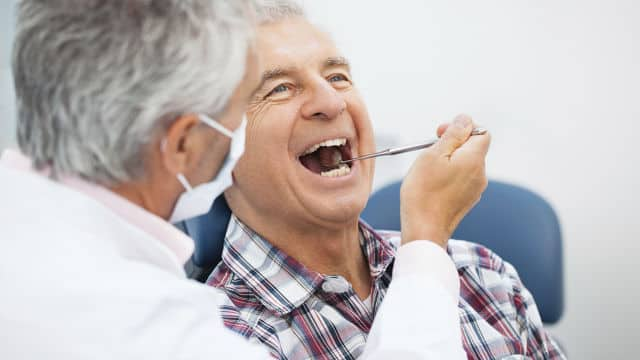





Implants
Common Dental Implant Problems and How to Treat Them
The vast majority of implants are successful, but occasionally dental implant problems can occur. Fortunately, they can almost always be treated by a dentist.
Read More








Pregnancy Oral Care
Teeth Whitening When Pregnant: Is It Safe?
Everyone wants a whiter, brighter smile, but teeth whitening when pregnant may not be the best idea for an expectant mother. Learn why here!
Read More
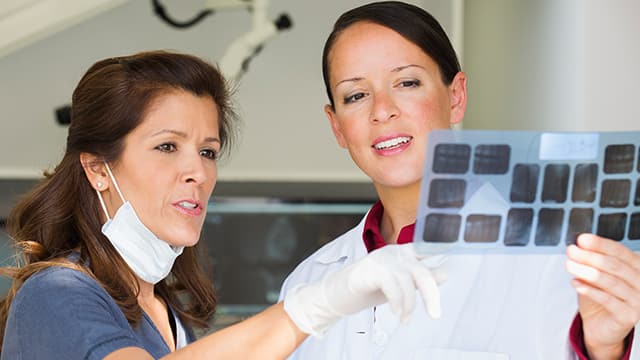







Root Canals
Myths About Root Canal Treatment
A root canal treatment can be scary to some people who are not familiar with the procedure. Learning the truth about these root canal myths and misconceptions can help you get a better understanding of what a root canal really is.
Read More
Root Canals
What Is Endodontic Retreatment and When Is It Needed?
The American Association of Endodontists (AAE) sums up the profession neatly, stating that endodontists are the tooth-saving specialists of dentistry. Learn more about how they can help you here!
Read More
Root Canals
Root Canal Pain: What to Expect
While severe pain after root canal isn't common, it is common to experience a bit of discomfort in the treated area. Read on to learn what to do for root canal pain and when to contact a doctor.
Read More
Root Canals
Root Canal Vs. Extraction: Which Is Right For You?
Choosing between root canal vs. tooth extraction can prove to be a difficult decision; learning more about both methods can help you make the right decision.
Read More
Root Canals
Severe Dental Pain: How Do Dentists Remove A Tooth Nerve?
Many people will experience a toothache at some point. When severe dental pain strikes, your dentist may remove a tooth nerve. Here's how.
Read More
Root Canals
What Is A Calcified Tooth? Causes And Treatment Options
A calcified tooth can develop after dental trauma, such as from a sports injury. Here's what to know about this dental condition.
Read More
Root Canals
Why Old Root Canal Symptoms Return And What To Do Next
Root canal treatment is typically very successful. However, old root canal infection symptoms may sometimes return. Here's how your dentist will help.
Read More
Root Canals
Dead Nerve In A Tooth: Causes And Treatment
If your dentist has found a dead nerve in a tooth, don't panic: your tooth can be saved, even when it is no longer vital. Why wait? Learn more today.
Read More
Root Canals
Here's What To Eat After A Root Canal
The healing period after a root canal procedure isn't what most would describe as fun, but it's important to follow your dentist's aftercare instructions to protect your sensitive, restored tooth.
Read More
Root Canals
Should You Remove a Tooth that has had Root Canal Treatment?
If you've had a root canal and the tooth is bothering you again, you might be wondering when it's time to remove a root canal tooth. Here's what to know.
Read More
Root Canals
Do You Need a Crown After a Root Canal?
Weighing the pros and cons can help you decide if a root canal without crown placement is the best and most cost-effective option for you.
Read More




Plaque & Tartar
What Disclosing Tablets Can Tell You about Plaque
Plaque disclosing tablets can help you see where the plaque is plaguing your teeth and help you do your best to get rid of it. Find out more about them.
Read More

Plaque & Tartar
What Is a Mouth Debridement?
Full mouth debridement involves the extensive removal of plaque and calculus from the teeth. Click here to learn more about full debridement with Colgate.
Read More
Plaque & Tartar
Can You Dissolve Tartar? What Would Your Dental Hygienist Think?
Will a rinse to dissolve tartar soon be a dental care option? Learn more about dental care tips and tricks for maintaining good oral care.
Read More
Plaque & Tartar
Dental Plaque Germs: What You Need to Know
Have you ever stopped to think about gum disease? The damage that dental plaque germs cause can be permanent.
Read More
Plaque & Tartar
Flossing: Do I Really Have To?
Maintaining proper oral hygiene requires the cultivation of several good oral care habits which, when performed together… Read more at Colgate.com
Read More
Plaque & Tartar
How Plaque Causes Gum Disease and Tooth Cavities
When germs overstay their welcome in your mouth, numerous dental problems can set in. Plaque causes gum disease in the following ways.
Read More
Plaque & Tartar
Black Tartar On Teeth
Black tartar on teeth forms below the gum line and causes many dental issues. Though it isn't difficult to treat, only dentists can remove it.
Read More
Plaque & Tartar
Biofilm Formation: How To Protect Your Mouth From Harmful Germs
Your mouth is home to many species of germs, both good and bad. Learn about the stages of biofilm formation and how to protect your mouth.
Read More
Plaque & Tartar
How Subgingival Calculus Forms And How To Prevent It
You might know about dental plaque, but what about subgingival calculus? Here's how this substance impacts your dental health.
Read More
Plaque & Tartar
Calcium Deposits on Teeth: Treatment and Prevention
Calcium build-up on teeth can often be prevented by regular brushing, but you'll need the help of your dentist to remove it if it decides to stick around.
Read More
Plaque & Tartar
Plaque: What Is It and How do I Get Rid of It?
By following easy steps for keeping your teeth and gums healthy – plus seeing your dentist regularly — you can have your teeth for a lifetime!
Read More
Plaque & Tartar
Are Probiotics Good For Oral Health?
Probiotics for oral health are an effective, natural and economic means of fighting gum disease, plaque and bad breath. Here's how these microbes help you.
Read More








Jaw Pain (TMD)
Jaw Pain: Causes And Treatments
There are several medical conditions that can be contributing factors to jaw pain; this makes diagnosis and treatment much more difficult.
Read More








Bridges & Crowns
Tooth Crown Pain: Causes And Treatment
If you're experiencing tooth crown pain, you'll need to get your new or current crown checked and sorted to help get pain relief.
Read More


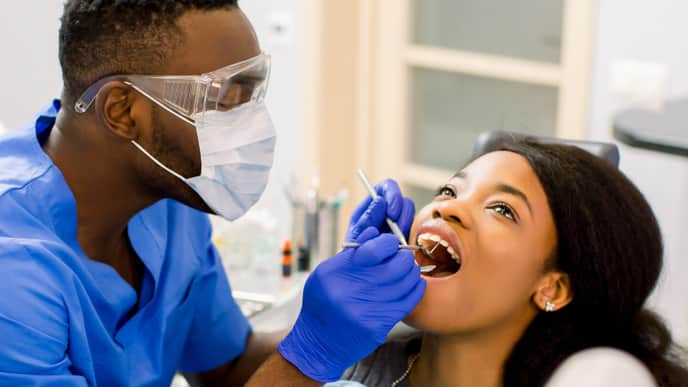
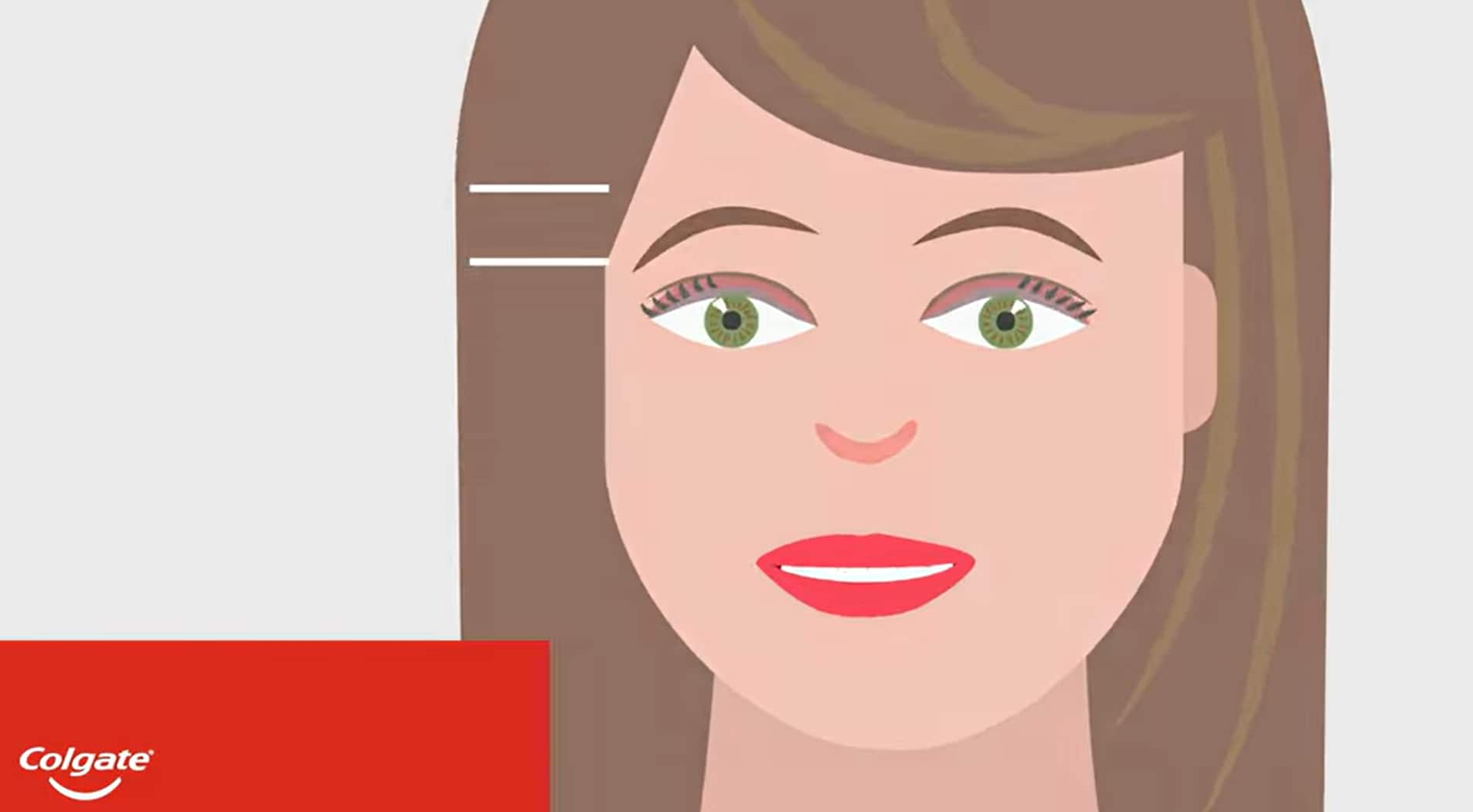
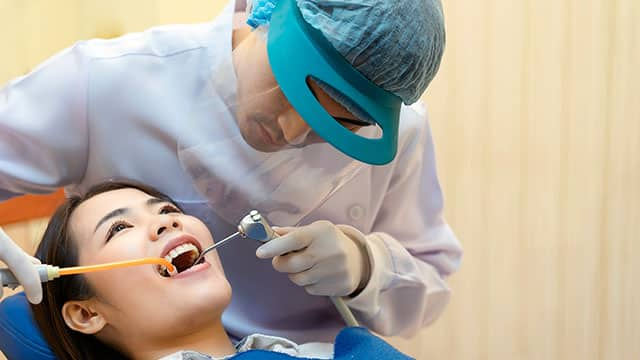
Fillings
How Long Does It Take to Fill a Cavity?
How long does it take to fill a cavity? While getting a cavity isn't fun, the treatment only takes about an hour, so book a visit with your dentist.
Read More
Fillings
Jaw Pain After a Filling: What Could Be the Cause?
If you have jaw pain after receiving a dental filling, you may be concerned that something went wrong with your procedure. Here's why you may have pain.
Read More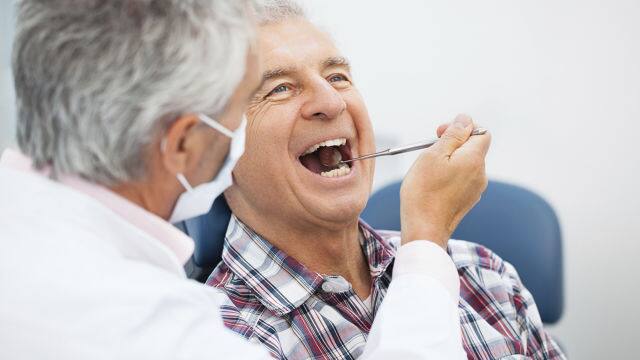






Dentures
How To Whiten Dentures: Stain Removal And Prevention
You want your smile to shine, but dentures can become stained. Read on to learn how to whiten dentures at home and with a dentist's help.
Read More


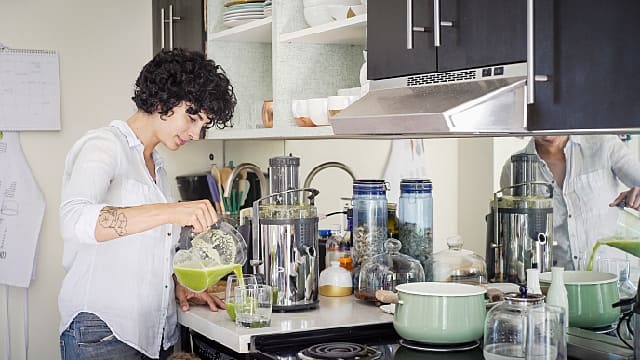




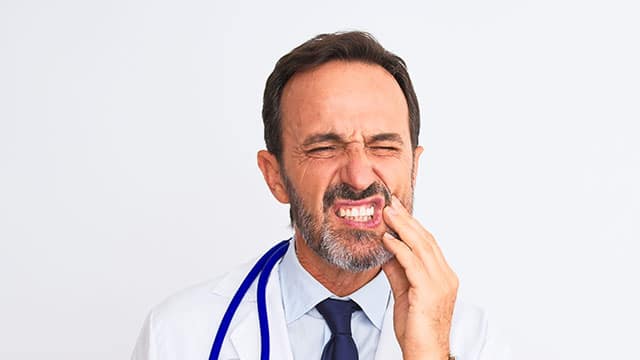
Nutrition & Oral Health
Tooth Nerve Pain: Triggers & Treatment
Whether it's a sharp, stabbing sensation or a dull ache, tooth nerve pain can take the enjoyment out of eating. Find out what can trigger tooth nerve pain.
Read More
Nutrition & Oral Health
Hypoglycemia and Managing Glucose Levels
Hypoglycemia occurs when the glucose levels in your blood fall too low. Learn how to manage the symptoms of this condition and establish healthy habits.
Read More
Nutrition & Oral Health
How Healthy Eating Improves Your Oral Health
By adopting healthy eating habits, you can improve your physical and oral health, prevent disease, and promote healthy growth and development for children and adolescents.
Read More
Nutrition & Oral Health
Is Milk Good for Your Teeth?
Dairy products keep your teeth as healthy as your bones throughout your life. So, is milk good for your teeth? The answer is a resounding yes, and here's why.
Read More
Nutrition & Oral Health
Tea Tree Oil & Your Teeth
Tea tree oil has become a very popular natural remedy for oral health. Learn more about the benefits and how to properly use it.
Read More
Nutrition & Oral Health
Does Taking Vitamin K2 Benefit Your Oral Health?
You are what you eat, and the vitamins you include your diet can benefit your overall health. Here's what to know about vitamin K2 benefits.
Read More
Nutrition & Oral Health
Does Toothpaste Expire?
Colgate products typically have a two-year expiration date to ensure that the fluoride is at an optimal level of stability, as the ions in the fluoride are at their most effective within two years.
Read More
Nutrition & Oral Health
The Best Foods For Your Teeth
Oral health is one of the first areas to decline when your diet is less than ideal. Use this healthy foods list to improve your diet and the health of your mouth.
Read More
Nutrition & Oral Health
What Are The Best Foods For Gum Health?
Many people have heard that milk is good for their bones, and carrots are good for their eyes. But what are the best foods for healthy gums? Read on to learn more.
Read More
Nutrition & Oral Health
5 Essential Vitamins For Teeth And Gum Health
Proper nutrition is beneficial for your whole body, including your teeth and gums. By ingesting the right vitamins through food or supplements, you can help protect your oral health.
Read More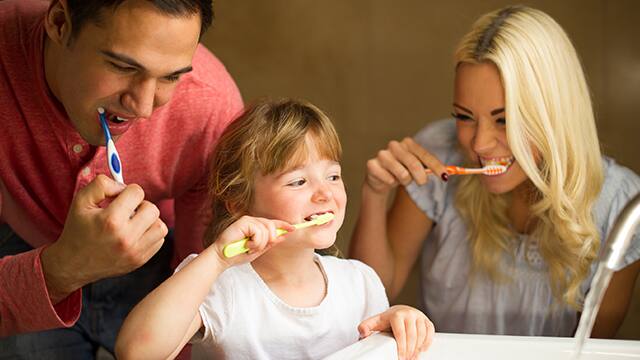
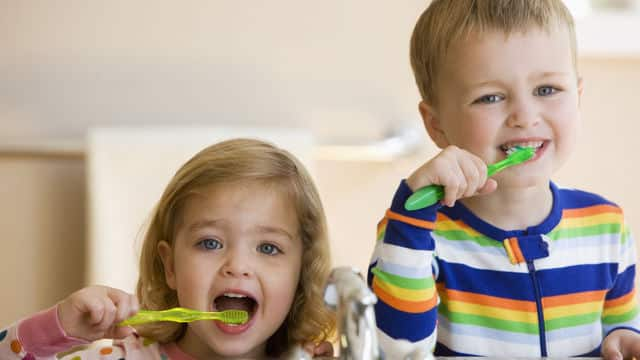




Brushing & Flossing
What Is the Right Way to Floss?
Flossing teeth is the quick, effective way to keep your teeth and gums healthy. Discover flossing techniques at Colgate.com and learn the types of floss you should use. Colgate is your partner in dental health so visit us online.
Read More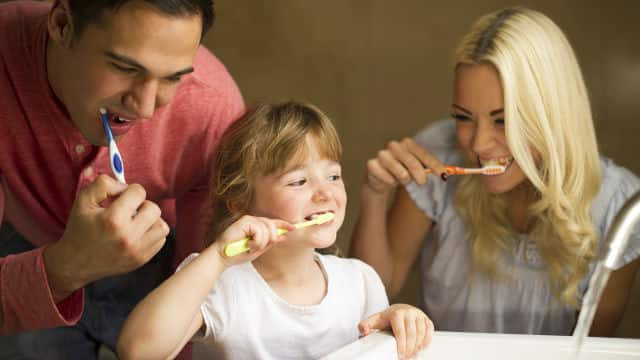

Brushing & Flossing
Five Easy Ways To Improve Dental Health
There's a link between your overall health and your dental health, and not taking great care of the latter can increase your risk for several conditions.
Read More
Brushing & Flossing
Is Brushing Teeth After Eating Good for You?
Certain foods and drinks – especially those high in carbohydrates and sugars - trigger the presence of germs in your… Read more at Colgate.com
Read More
Brushing & Flossing
Do Your Gums Bleed When Flossing?
If your gums bleed when flossing, you probably need to change your dental care routine slightly. That doesn't mean your mouth is un...
Read More
Brushing & Flossing
Don't Be Strung Up By Floss: How-To Guide For Flossing
Take the time to teach your kids how to floss properly to ensure that their teeth are healthy and beautiful for years to come.
Read More
Brushing & Flossing
Should You Use Mouthwash Before or After Brushing?
Should you use mouthwash before or after brushing? Here's the answer that will help you improve your daily oral care routine.
Read More
Brushing & Flossing
Orange Juice and Toothpaste: Why They Don't Mix
If you've ever taken a sip of orange juice after brushing your teeth, you'll know what a surprising taste can follow... Read on to learn why.
Read More
Brushing & Flossing
3 Possible Causes of Tooth Pain After Brushing
Do you have tooth pain after cleaning your teeth? Pain from brushing and flossing may be a sign that there is something wrong with your oral health.
Read More
Brushing & Flossing
How to Brush Your Teeth Properly
Read on for a quick refresher on brushing, flossing and eating well for healthy teeth and gums.
Read More
Brushing & Flossing
Is Over-Brushing Your Teeth Bad?
If you care about your oral hygiene, you likely brush your teeth twice a day. But if frequent brushing is a good thing, then how can over-brushing teeth be risky?
Read More
Brushing & Flossing
How to Store Your Toothbrush Safely
Safe storage for family toothbrushes isn't difficult or complex, but it can help keep extra germs and contaminants away from your toothbrushes and your mouth.
Read More



Gum Disease (Gingivitis)
Dental Scaling And Root Planing To Keep Your Teeth And Mouth Clean
Read More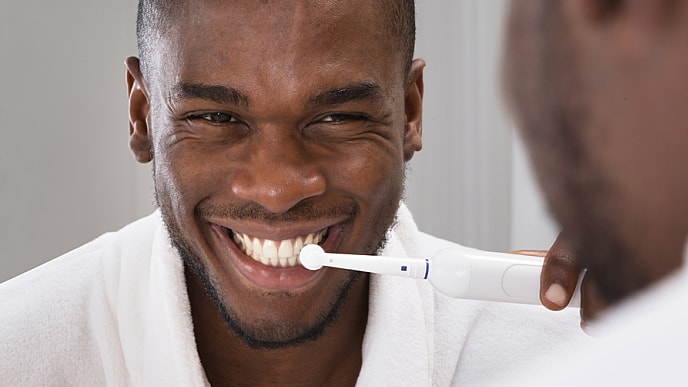




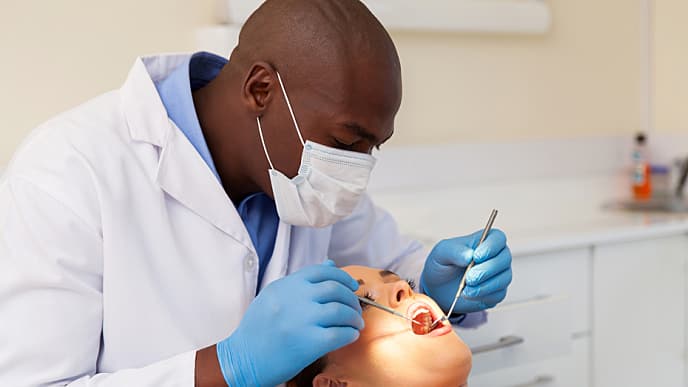






Gum Disease (Gingivitis)
How To Treat Gum Problems: What To Do When You Don't Have Dental Insurance
Read More




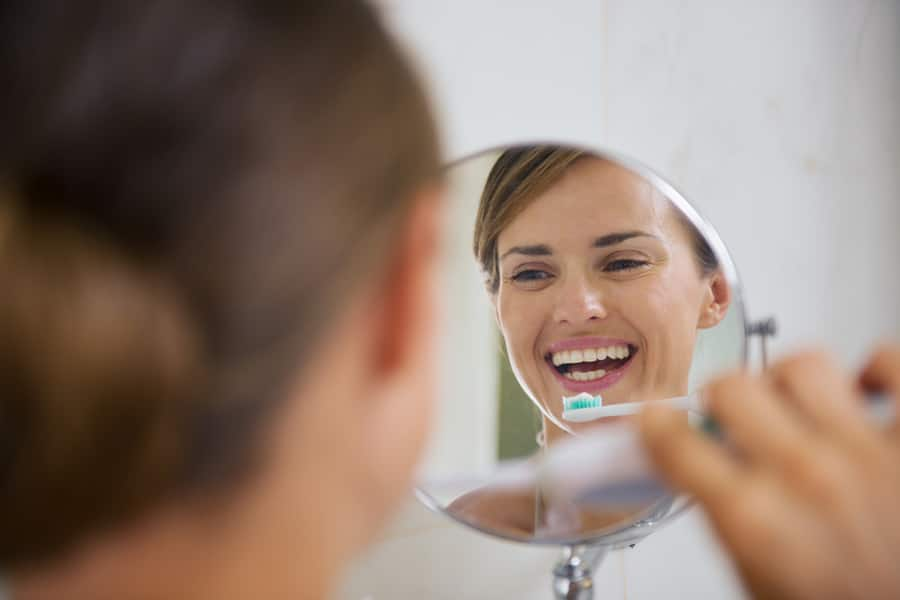




.png)
Gum Disease (Gingivitis)
Are Your Teeth Bleeding? No, Your Gums Are
Learn about causes of teeth bleeding, ways to gently relieve the discomfort, and methods to stop the bleeding.
Read More
Gum Disease (Gingivitis)
Bleeding Gums Treatment
Bleeding gums when you brush or floss is often an early symptom of gum problems, which can lead to more advanced issues.
Read More
Gum Disease (Gingivitis)
Coconut Oil For Receding Gums: Does It Work?
You may have heard that coconut oil helps keep your gums healthy. It's important to speak with your dentist before you use coconut oil for receding gums.
Read More.png)
Gum Disease (Gingivitis)
What Does Gingivitis Treatment Entail?
A diagnosis of gingivitis can be alarming, but the good news is that gingivitis is actually a mild form of gum disease.
Read More
Gum Disease (Gingivitis)
How to Cure Gingivitis
Gingivitis can be reversed by eliminating the tartar that's causing the irritation in your gums. Learn more here.
Read More

Gum Disease (Gingivitis)
How Deep Cleaning Your Teeth Prevents Severe Gum Disease
Gum disease is very common. At a certain point, giving your teeth deep cleaning can remove the infection and tartar so that your gums can heal.
Read More
Gum Disease (Gingivitis)
Mouthwash for Gum Disease: Another Good Tool
Although gum disease comes from germs living in your mouth, mouthwash for gum disease is actually the ideal complement to traditional oral care.
Read More
Gum Disease (Gingivitis)
Pink In The Sink: What Causes Gingivitis?
Gingivitis is an oral health disease, most often resulting from poor oral home care. Many individuals who suffer from this condition are unaware of it.
Read More
Gum Disease (Gingivitis)
Receding Gums: Treatment and Causes
Receding gums cannot grow back. However, your dentist or periodontist can help you treat and prevent them from getting worse.
Read More.png)
Gum Disease (Gingivitis)
Why Is Mouthwash For Tender and Sensitive Gums Beneficial?
Tender and Sensitive gums are an early sign of gum problems. Using an antimicrobial mouthwash for tender and sensitive gums can help stop it in its tracks. Here's how it works.
Read More
Gum Disease (Gingivitis)
Periodontal Charting: What It Is & Why It's Important
Have you ever noticed that the dental hygienist or dentist was taking measurements of your gums? Periodontal charting is a part of preventative oral care.
Read More.png)
Gum Disease (Gingivitis)
Do You Know The Signs Of Gingivitis?
Gingivitis is a common reversible disease of the oral cavity. One of the primary signs of gingivitis and periodontal disease is inflammation.
Read More
Gum Disease (Gingivitis)
Finding The Best Toothpaste For Gums
If you are concerned about gum problems or periodontal disease, finding the best toothpaste for gums can ensure you prevent the germs that lead to it.
Read More
Gum Disease (Gingivitis)
Gum Disease Symptoms And What To Do About Them
By familiarising yourself with gum disease symptoms, you can get proper care immediately if you develop a problem.
Read More
Gum Disease (Gingivitis)
Gum Disease Treatment Options
Millions of people have gum disease, but are not aware that they have this serious condition. Periodontal diseases are infections of the gum tissue.
Read More.png)
Gum Disease (Gingivitis)
Is Gingivitis Gum Disease?
Many preventable conditions can have similarities that make diagnoses confusing. For example, is gingivitis gum disease? Yes and no.
Read More.png)
Gum Disease (Gingivitis)
Receding Gums Treatment: Surgical Options
Receding gums can lead to serious oral health problems when the problem is ignored. To keep your mouth healthy, look into receding gums treatments.
Read More

Gum Disease (Gingivitis)
5 Causes Of Bleeding Gums You Should Know
Noticing that your gums bleed when you brush or floss can be alarming. What are the possible causes of bleeding gums? Click here to learn more about tooth conditions.
Read More












Tooth Sensitivity
So, is carbonated water bad for your teeth?
So, is carbonated water bad for your teeth? Here's what you need to know about the popular beverage.
Read More
Tooth Sensitivity
Managing Sensitive Teeth After Whitening
Tooth whitening is a great option for the removal of surface stains and discoloration. However, many people experience sensitive teeth after whitening.
Read More
Tooth Sensitivity
Potential Causes of Toothaches: It’s Not Always a Cavity
No matter how conscientious you are about your oral care routine, at some point in your life you will probably experience the… Read more at Colgate.com
Read More
Tooth Sensitivity
How Sensitive Teeth Can Occur And How To Respond
Learn more about teeth sensitivity. Find out how teeth sensitivity is caused, and how you can not only treat sensitivity, but prevent it in the future.
Read More
Tooth Sensitivity
How Tooth Nerve Pain Occurs
Here are some foods and drinks to avoid when suffering from tooth pain, and some insight into how the nerve becomes exposed in the first place.
Read More
Tooth Sensitivity
Tooth Pain: What Could It Mean?
You go to the dentist every six months. You are cavity-free. So what is the deal with all of this tooth pain? Learn more about tooth pain causes here.
Read More
Tooth Sensitivity
How Sensitive Teeth Toothpaste Cleans A Tender Mouth
Sensitive teeth toothpaste offers an effective way to strengthen your teeth and reduce the discomfort that sensitivity can cause. Here's how:
Read More
Tooth Sensitivity
Why Are My Teeth Sensitive After A Dental Cleaning?
If you experience sensitive teeth after cleaning treatment, and it continues longer than normal, your dentist can offer the following help and advice.
Read More
Tooth Sensitivity
Sensitive Teeth To Cold: What You Should Know
Determine the cause of your tooth sensitivity and the possible treatments available.
Read More
Tooth Sensitivity
Preventing and Treating Exposed Dentin
Exposed dentin can be annoying and painful, but there are many ways to prevent enamel erosion and treat tooth sensitivity. Find out more, with Colgate®.
Read More
Tooth Sensitivity
Are Your Teeth Sensitive To Sugar?
Learn more about teeth sensitivity. Find out how teeth sensitivity is caused, and how you can not only treat sensitivity, but prevent it in the future.
Read More
Tooth Sensitivity
Exposed Tooth Root: Causes And Symptoms
An exposed tooth root may be the cause of your tooth pain. Learn more about the causes, symptoms and treatment of an exposed tooth root here.
Read More
Tooth Sensitivity
Tooth Sensitive To Hot Or Cold? What It Means And How To Help
As unpleasant, painful and disruptive to your morning routine as it is, a tooth sensitive to hot food or drink can be more than a minor inconvenience.
Read More



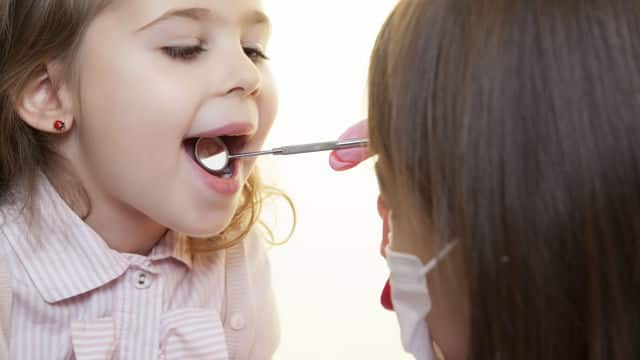
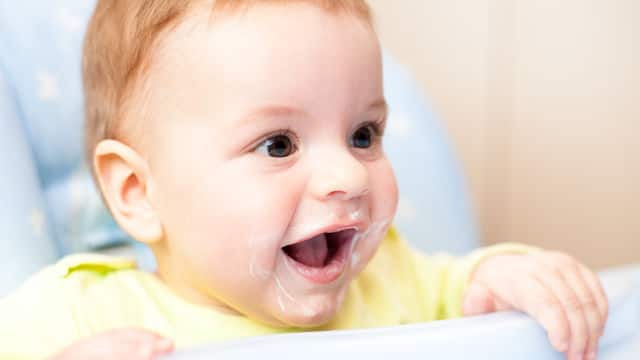
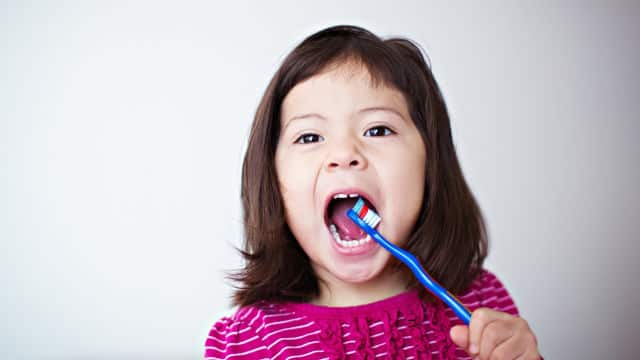
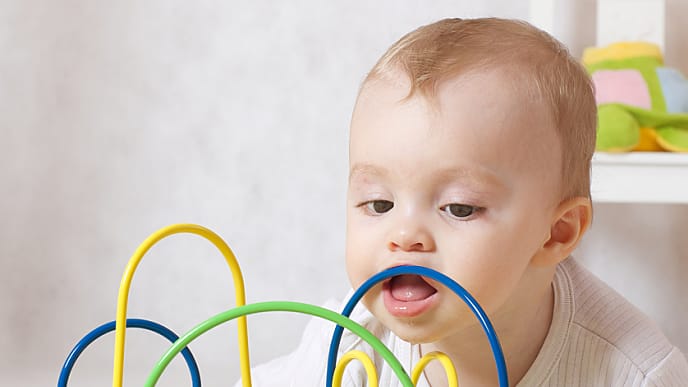







Oral Care: Babies (0-4)
Top Teething Rememdies for Babies: Helping Your Little One Overcome the Pain
Read More

















Tooth Fairy
How to Answer the Question "Is the Tooth Fairy Real?"
Every parent gets hit with a few dreaded questions at some point. "Is the tooth fairy real?" is one of them. Find out how to answer this question, here.
Read More
















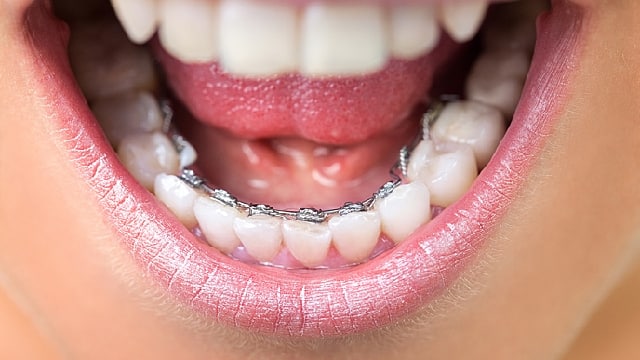

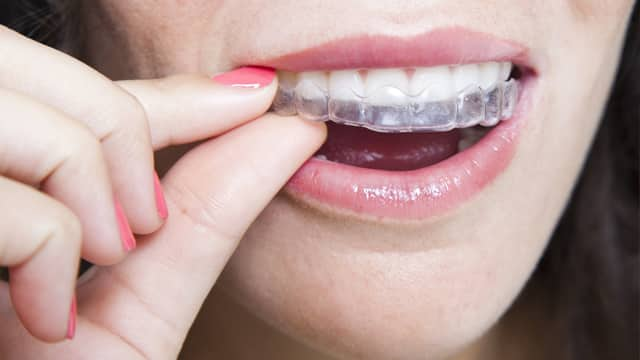



Adult Orthodontics
What Swollen Gums with Braces Means for Your Oral Health
When receiving orthodontia for straighter teeth, you may find swollen gums with braces come with the territory. Here's how to care for them.
Read More
Adult Orthodontics
What Causes Crooked Teeth?
Crooked teeth can have a variety of causes, from genetics, malnutrition and oral habits to dental disease and poor dental hygiene. Learn more here.
Read More



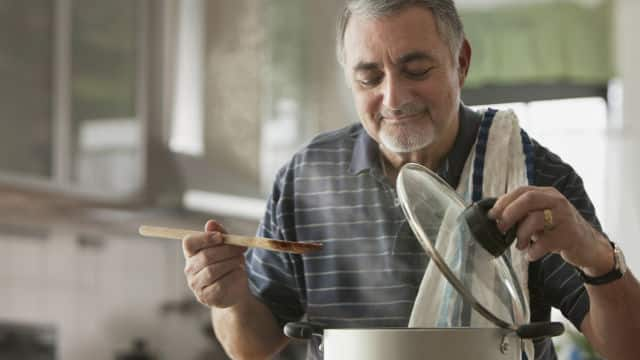














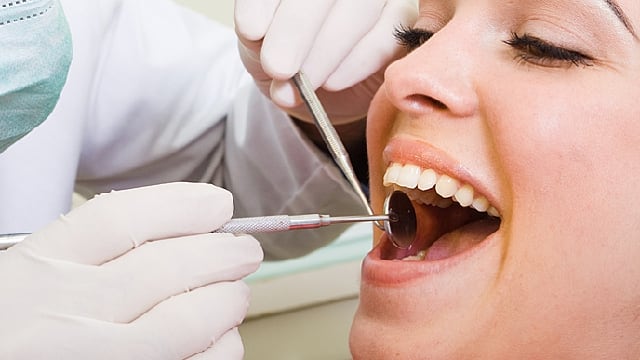

Cancer
How Lymphoma Can Affect Your Oral Health
Lymphomas are cancers that affect the lymphatic system, an important part of the body's immune system and blood network. Learn more here.
Read More
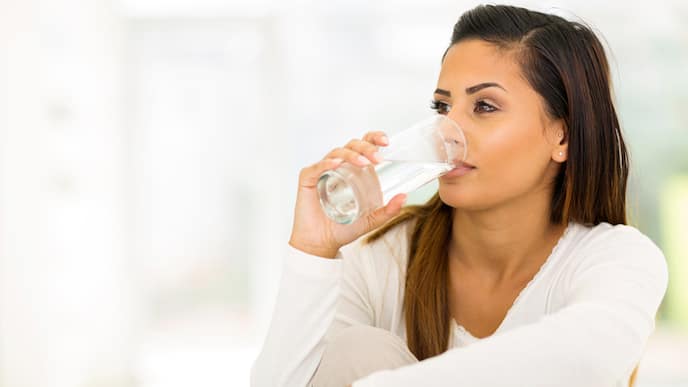


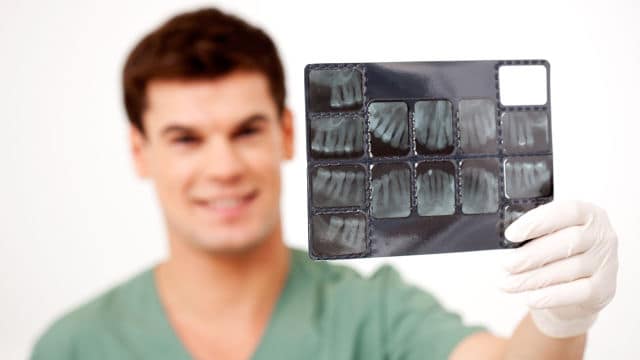
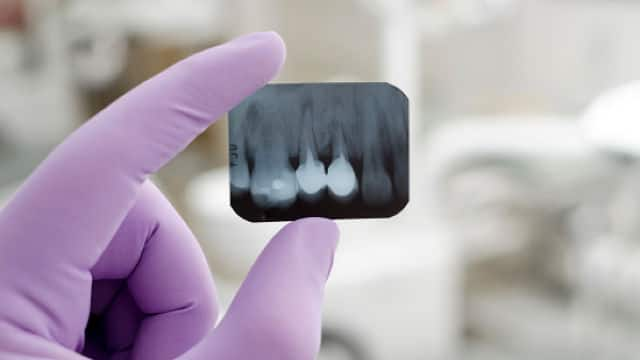









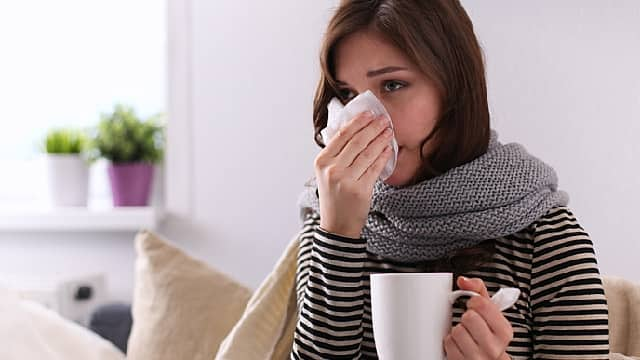



Respiratory Conditions
How To Use A Salt Water Gargle For A Sore Throat
Sore throats can be very unpleasant. Using a salt water gargle for a sore throat may help relieve your discomfort. Here's how.
Read More











Early Orthodontics
Crossbite: Effects And Treatments
Crossbite is a type of oral misalignment where the upper and lower teeth don't meet correctly when closed in a bite. Learn more here.
Read More







Diabetes & Other Endocrine Disorders
Salty Taste in Mouth & Diabetes: Complications and Remedies
Read More
Diabetes & Other Endocrine Disorders
Dental Care For Diabetics: Five Conditions To Watch For
Uncontrolled diabetes, diabetic medications and high blood sugar levels can cause decreased saliva flow and a dry mouth.
Read More
Diabetes & Other Endocrine Disorders
Periodontal Disease in People with Diabetes Can Lead to Tooth Loss
Periodontal disease is more likely to occur in diabetic patients than in non-diabetic patients, so people with diabetes should take extra good care of their oral health.
Read More
Diabetes & Other Endocrine Disorders
Does Diabetes Cause Gum Problems? Or Do Gum Problems Cause Diabetes?
Medically Reviewed By Colgate Global Scientific Communications
Read More
Diabetes & Other Endocrine Disorders
How Does Type 1 Diabetes Affect Your Teeth?
What is type 1 diabetes? It's a disease in which the pancreas is unable to produce insulin, a hormone that controls the amount of glucose (sugar) in the blood.
Read More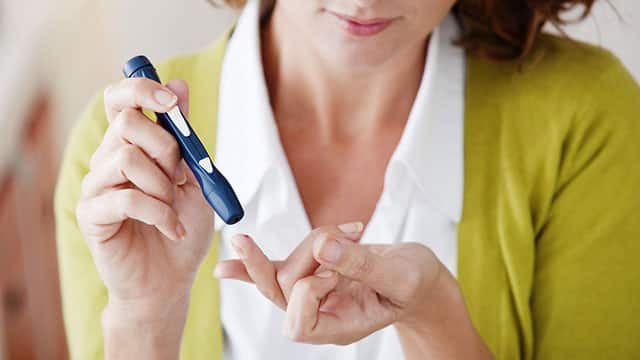
Diabetes & Other Endocrine Disorders
Gum Problems and Diabetes: Detection and Treatment
Knowing the stages of diabetes where you're most likely to see these partner symptoms, and what preventive steps to take, will help improve the quality of your life with diabetes.
Read More.png)
Diabetes & Other Endocrine Disorders
Diabetes And Dental Treatment: What You Should Know
Dealing with diabetes and dental treatment can be tricky. Diabetes can lead to oral health complications, and it's important to balance both health areas.
Read More




